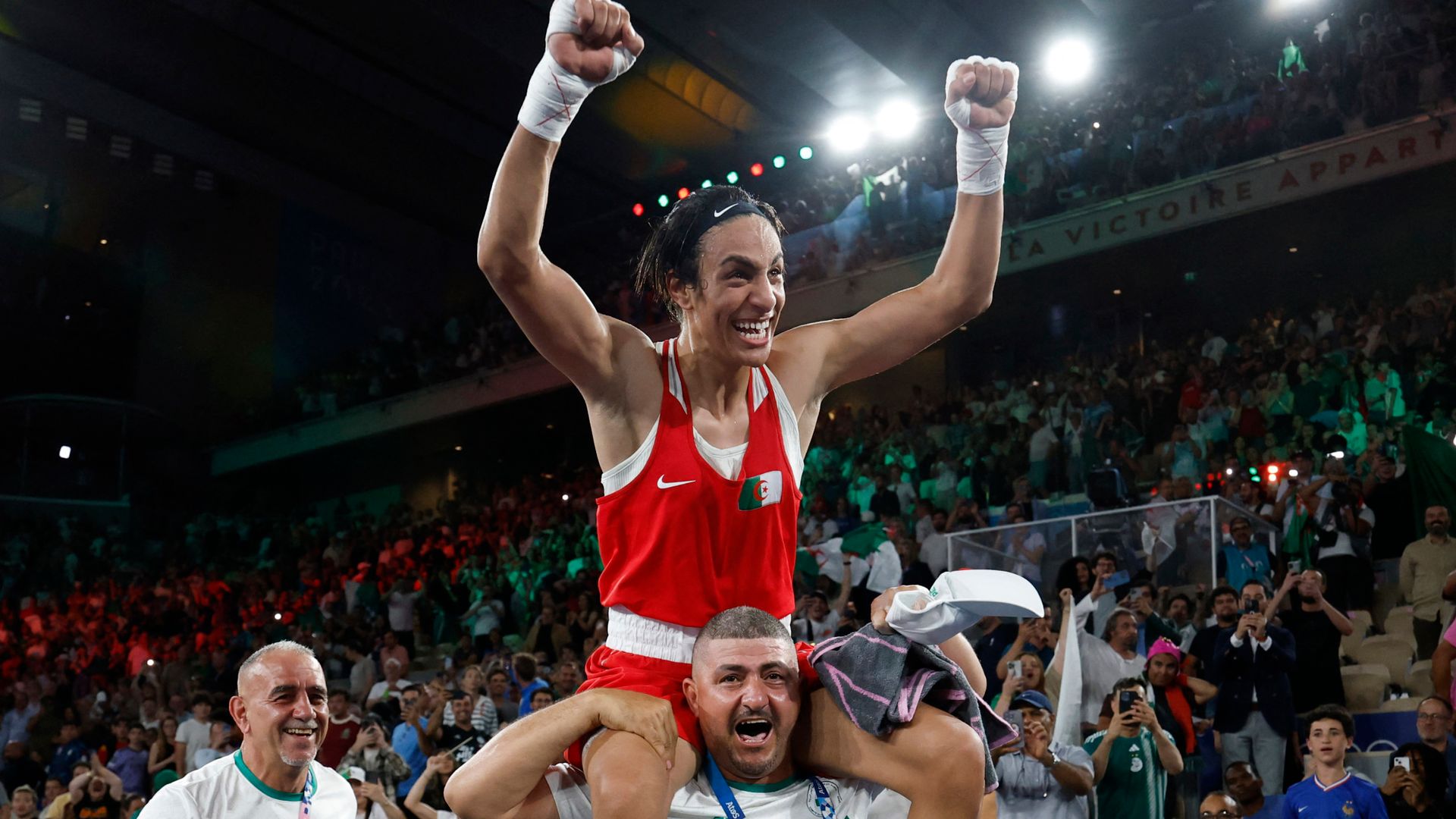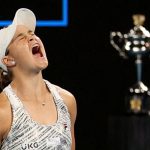The Algerian boxer at the centre of a gender row at the Paris games has been crowned Olympic champion.
Imane Khelif comfortably beat China’s Yang Liu by unanimous decision to win gold in the women’s welterweight final.
She won each of the three rounds on the judges’ scorecards and jumped into the arms of her trainer when the decision was announced.
He carried the 25-year-old round the arena on his shoulders in celebration.
Khelif had been under intense scrutiny after a previous opponent quit after 46 seconds, saying it was to protect her health as the Algerian’s punches were so strong.
Khelif had said winning gold would be the “best response” to her critics.
Some argued she should not have been allowed to compete due to concerns she might have testosterone advantages that can lead to extra strength and muscle.
What happens after an Olympics?
Team GB teenager Toby Roberts secures climbing gold at Paris Olympics
Olympic skateboarder Nyjah Huston criticises quality of Paris 2024 medals after visible deterioration in one week
Khelif and a Taiwanese boxer were banned from the world championships last year, with the International Boxing Association (IBA) saying they failed gender eligibility tests.
However, the International Olympic Committee (IOC) said the decision was “sudden and arbitrary” and the tests were majorly flawed.
It has banned the IBA over governance issues, alleged corruption and ties to Russia.
IOC spokesperson Mark Adams said earlier in the Paris tournament that all the boxers met eligibility criteria – with gender and age “based on their passport”.
He said Khelif and Taiwan’s Lin Yu-ting had been competing in women’s competition for many years, with the Algerian also appearing at the Tokyo games.
The debate over the boxers has seen renewed discussion over athletes who may have differences in sexual development (DSD).
This covers a group of conditions involving genes, hormones and reproductive organs – but it’s not known whether Khelif and Yu-ting have such variations.






















